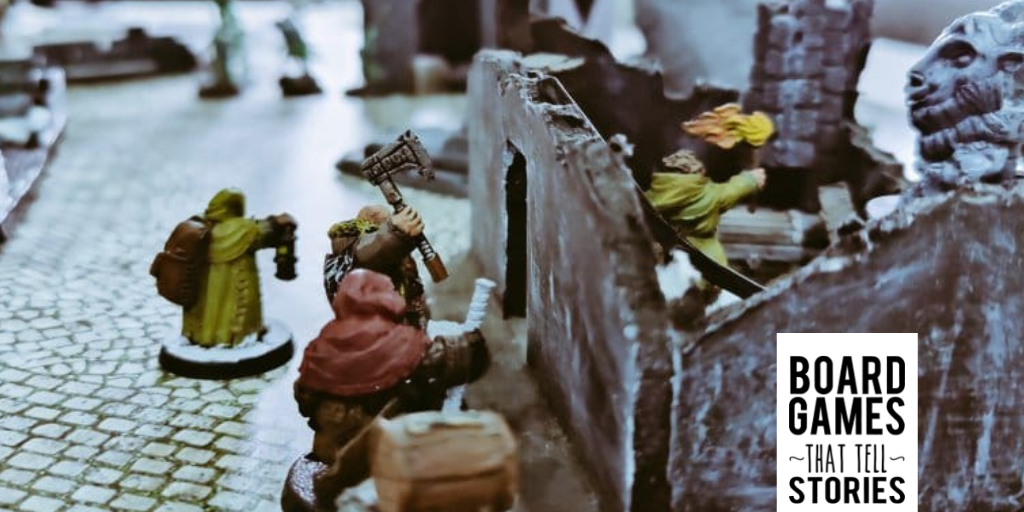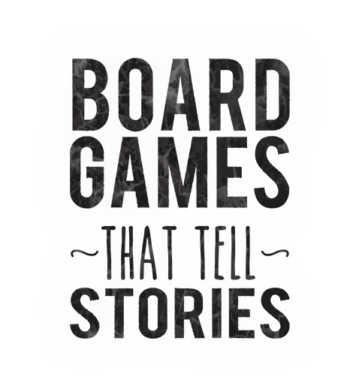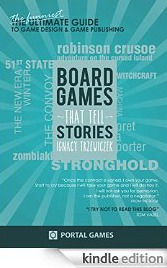The Key to Reviewing Frostgrave

Nothing works in this game. The mechanics based on k20 dice, just like the famous Dungeons & Dragons, completely fails on every step in this case. Contested rolls are ridiculous, attacking your opponent is extremely risky, and duels are so random that it would make more sense to take a deck of regular cards and play War. The balance of available spells doesn’t exist. If you put me on a scene, I would start roasting Frostgrave for an hour, and I wouldn’t list even half of the problems I have with this game.
Also, I have to mention I’ve played it eight times already, I bought six expansions, and last weekend I also bought a second army so that I could play two campaigns simultaneously, cause one campaign is just not enough! I’m hopelessly in love with Frostgrave.
Frostgrave is a wargame published by Osprey Games. It’s one of the most popular games from recent years that falls under a genre of miniature agnostic games—games in which the publisher doesn’t offer or produce any miniatures. The publisher only creates the rules, publishes them, and says: “buy yourselves any miniatures (or 3D-print them) and have fun.”
The picturesque, intriguing world invites us into the forlorn ruins of Frostgrave, where a magical catastrophe caused a massive explosion. The city is abandoned, inhabited only by the undead, rats, wolves, and other atrocities. It’s winter, cold and harsh, and the thick layer of snow covers the remains of homes. This frozen mausoleum is a destination for treasure hunters. People scavenge the ruins and seek the truth about the magical destruction of Frostgrave, as well as the troves hidden in the city.
Every player assembles their gang, each of them led by a wizard. Wizards are the main characters of this game. They want to learn what happened to the city, so they hire mercenaries to help them survive and safely search the ruins.
Frostgrave is 100% narrative-focused, and the rules I roasted in the first paragraph are not the core of this game. The core of this game is assembling a curious bunch for your gang, building an immersive terrain, drawing the rules for your team’s base, gaining XP for every play, and then leveling your wizards and finding new mixtures, artifacts, and spell scrolls in the ruins. Dueling rules and the whole game mechanics are just a less relevant addition to all this fun. The author of the game, Joseph McCullough, writes in the introduction for the rulebook (as well as numerous times later): it’s a storytelling miniature game. Create stories and have fun as if you were playing an RPG.
Today I’m reviewing Frostgrave, and I can tell you that this game is awesome. In December, I will have played it ten times. I’m absolutely in love with this game, and I can’t remember the last time I was so happy buying new models for my gang, building terrains, and printing scroll and potion cards I prepared in advance. I give Frostbite a 10/10 because it’s pure fun for me.
Nevertheless, I can also imagine different kinds of reviewers—a reviewer from the tournament scene, a reviewer getting mad during completely random duels, a reviewer who tears their hair out seeing the unbalanced spells, and a reviewer who grades Frostgrave as 1/10.
In a previous post on this blog, I was writing about the etiquette of judging a game or a book—the game is not good or bad. It simply either fits our playstyle or it doesn’t.
Today’s post is kind of an appendix. It’s good to listen to the creators and understand what they tried to achieve with their creations. Joseph wanted to make a narrative game. Not a tournament one, not a munchkin one. A narrative one. And that’s why I happily give Frostgrave a 10/10.


 I strongly believe that good board game is the one that tells a good story. You play it and suddenly you are sucked into it, you feel chills on the skin. Emotions grow. In a moment you defend castle. You hear roar of warriors. You smell boiling oil. You are into it.
That's how I design my games. I always want to tell a good story. I want players to be into it. As deep as possible.
I strongly believe that good board game is the one that tells a good story. You play it and suddenly you are sucked into it, you feel chills on the skin. Emotions grow. In a moment you defend castle. You hear roar of warriors. You smell boiling oil. You are into it.
That's how I design my games. I always want to tell a good story. I want players to be into it. As deep as possible.




Leave a Comment